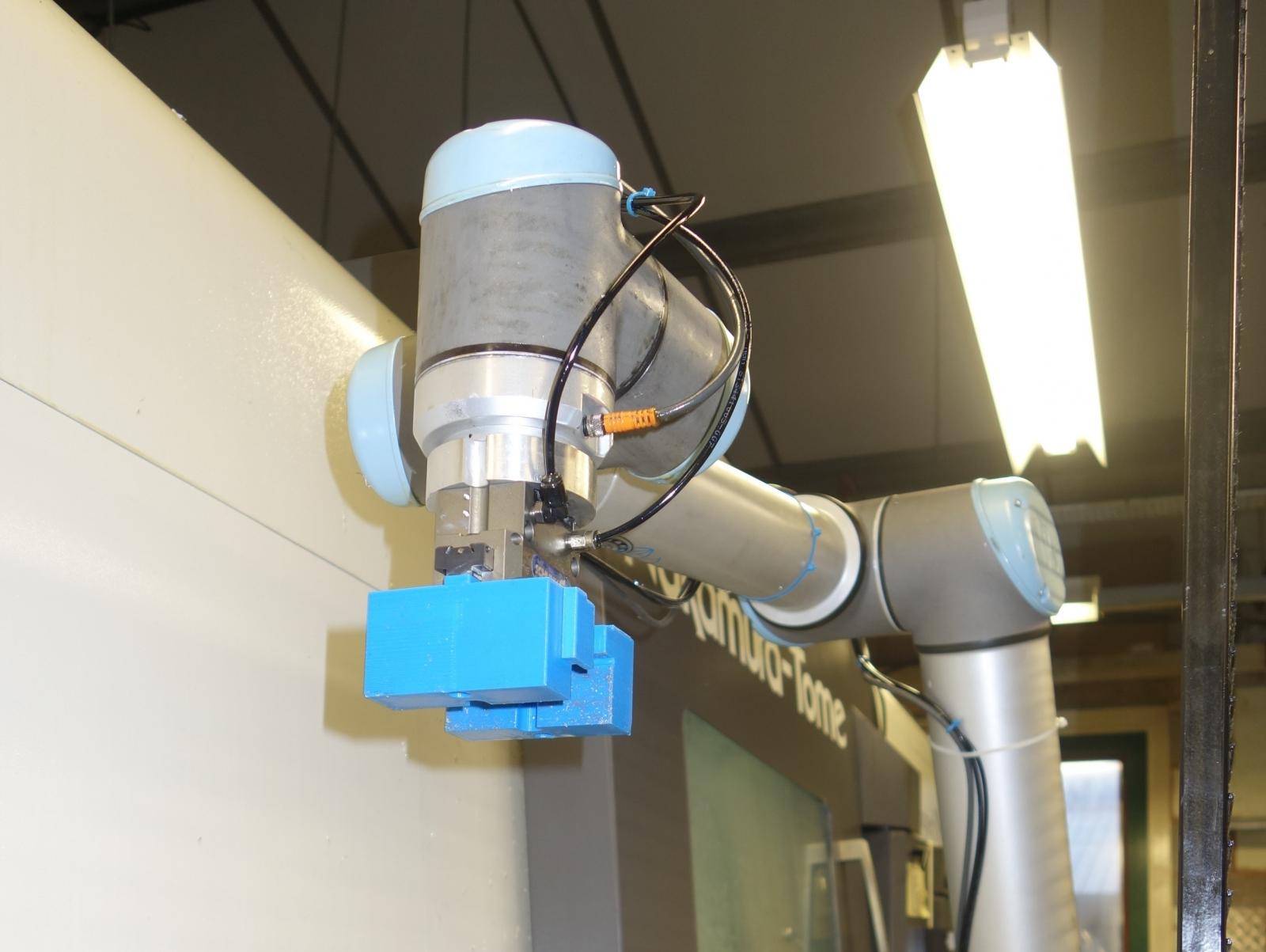
Multi-axis machinist Rousant Sherwood is winning business and staying competitive by delegating repetitive tasks to collaborative robots.
General Manager Robin Salter said: “Just to be clear, we have not invested in robots to save on headcount, we’ve done it to win contracts.”
The Henley-on Thames company is using a seven UR5 and UR10 robots from RARUK automation to feed 11 fixed head and 13 sliding head multi-axis turning and milling centres.
Rousant Sherwood Manufacturing (RSM) is a family-owned company that has been specialising in the subcontract manufacture of complex machined components for over 40 years. In this time, the company has built up an international reputation in industries such as medical, aerospace and oil and gas.
RSM has always understood that continued investment in state-of-the-art manufacturing technologies is the key to its success. The company has 11 Nakamura-Tome multi-axis, multi-turret, twin-spindle turn-mill centres, complemented by the latest 13-axis sliding-head turning and four-axis milling capability. As a result the company has minimised both cycle times and the number of set-ups required. However, faced with an increasingly competitive global marketplace, the 35-employee company wanted to make further efficiency gains, deciding to focus its attention on automation.
“In effect, the only advantage that competitors in low-wage economies have is their labour costs, so if we can eliminate that element from the calculation, it levels the playing field,” explains Mr Salter.
Surveying the entire range of industrial robots available, RSM concluded that six-axis Universal Robots were the ideal match for its machine-tending requirements, largely due to their ease-of-programming, competitive price and collaborative operating capabilities. Collaborative robots (‘cobots’) use innovative sensor technology (programmed with a pre-determined force) to stop safely in the event of human contact. As a result, around 80% of the thousands of Universal Robots in use worldwide operate with no safety guarding (after risk assessment).
“The ability to use the robots unguarded was something that appealed, as was the ease-of-programming,” states Mr Salter. “Programming is very intuitive; it can take as little as 10 minutes to program one of our robots for a new part. What’s more, we recently trained one of our apprentices and he picked it up in an hour!”
In total, RSM has invested in five UR5 (5kg payload) and two UR10 (10kg) Universal Robots.
RSM’s seven Universal Robots are today busy tending the company’s 14 CNC machine tools, with robots frequently relocated to different machines in line with customer/contract demands. One of the UR10 robots is currently serving a Nakamura-Tome Super NTJX multi-tasking turn-mill centre. The robot loads square billets of aluminium into the machine, where they are turned into aerospace components in a 40-minute cycle. The machine and robot are running 24 hours a day, seven days a week.
Mr Salter says: “We would never have been able to tender for this job without automation. Using a robot makes us profitable on work where we wouldn’t normally be able to compete.”
Further applications at RSM include two UR5s at a deburring station making military aerospace components, and a UR10 being used to load billets into a CNC mill. The company plans to invest in more Universal Robots moving forwards.
BACK TO ENGINEERING CAPACITY NEWS PAGE